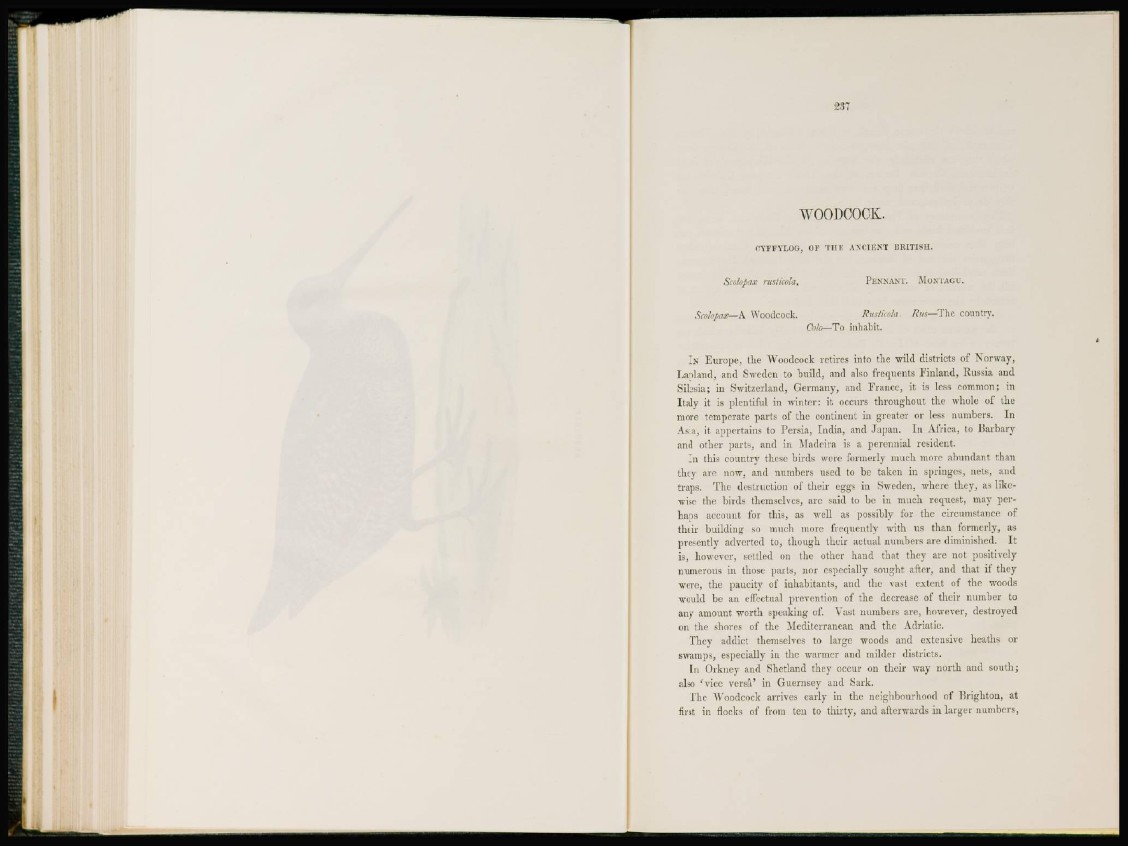
WOODCOCK.
OTFFYLOO, OF THE ANCIENT B R I T I S H.
Scolopax rust kola. PENNANT. MONTAGU.
Scohfiax—A Woodcock. R us i kola Rut—The country.
Colo—To inhabit.
IN Europe, the Woodcock retires into the wild districts of Norway,
Lapland, and Sweden to build, and also frequents Finland, Russia and
Silesia; in Switzerland, Germany, and France, it is less common; in
I t a ly it is plentiful in winter: it occurs throughout the whole of the
more temperate parts of the continent in greater or less numbers. In
Asia, it appertains to Persia, India, and Japan. In Africa, to Harbary
and other parts, and in Madeira is a perennial resident.
I n this country these birds were formerly much more abundant than
they are now, and numbers used to be taken in springes, nets, and
traps. The destruction of their eggs in Sweden, where they, as likewise
the birds themselves, are said to be in much request, may perhaps
account for this, as well as possibly for the eircumstai ice < if
their building so much more frequently with us than formerly, as
presently adverted to, though their actual numbers arc diminished. It
is, however, settled on the other hand that they arc not positively
numerous in those parts, nor especially sought after, and that if they
were, the paucity of inhabitants, and the vast extent of the woods
would be an effectual prevention of the decrease of their number to
any amount worth speaking of. Vast numbers are, however, destroyed
on the shores of the Mediterranean and the Adriatic.
They addict themselves to large woods and extensive heaths or
swamps, especially in the warmer and milder districts.
I n Orkney and Shetland they occur on their way north and south;
also 'vice versa' in Guernsey and Sark.
The Woodcock arrives early in the neighbourhood of Brighton, at
first in flocks of from ten to thirty, and afterwards in larger numbers,